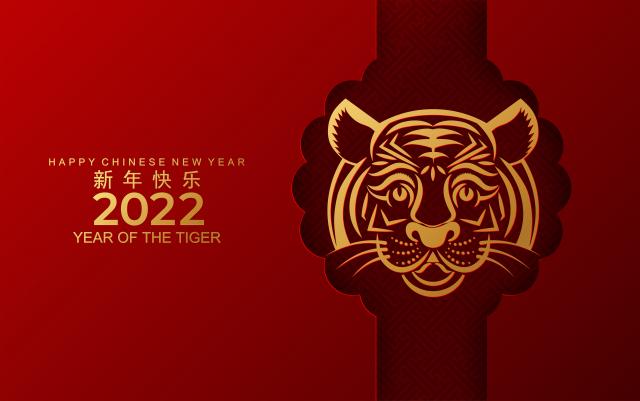Chinese New Year is just around the corner, with the Year of the Tiger starting on Tuesday February 1.
Also known as Lunar New Year or the Spring Festival, celebrations of Chinese New Year traditionally last for 16 days. Running from Chinese New Year’s Eve on January 31, past New Year’s Day on February 1, through to the annual Lantern Festival on February 15.
The date of Chinese New Year is different each year and is determined by the Chinese Lunar Calendar, based on the cycles of the moon and the sun. Following a 12 year cycle, each year in the Chinese Lunar Calendar correlates to one of 12 animals that make up the Chinese Zodiac. These animals, in order of the calendar, are the Rat, Ox, Tiger, Rabbit, Dragon, Snake, Horse, Goat, Monkey, Rooster, Dog and Pig.
Many offices, banks, factories, shops and non-essential businesses and services in China close for a week’s holiday, while hotels, restaurants and large retail outlets often stay open and could even be busier than usual.
Many Chinese people follow superstitions over the Chinese New Year period, including not using unlucky words such as ‘sickness’ or ‘death’ so as to not invite curses, avoid wearing black or white as they are associated with mourning, not gifting loved ones with odd amounts of lucky money and avoiding the number four (associated with death).
Gifting red envelopes to children and unmarried loved ones is a way to send good wishes over the Chinese New Year period, while setting off fireworks and firecrackers wards off bad spirits and ancient monsters. If gifting loved ones with New Year presents, make a quick internet search to ensure you can avoid negative superstitions.
Traditional dishes are prepared and eaten as symbols of luck and prosperity for the New Year. The Mandarin word for ‘fish’ is yú, which has the same pronunciation as the Mandarin word for ‘surplus,’ so fish is often eaten on New Year’s Eve to involve wealth and abundance. On the first day of the New Year, people often eat long noodles to symbolise a wish for longevity.
The Chinese New Year Festival signals the start of spring, bidding farewell to the old year and ushering in a new year. Lunar New Year is not only celebrated in China, but also in many other East Asian countries that have been influenced by Chinese culture. Countries such as Japan, Vietnam, Singapore, Malaysia, South Korea, Thailand and Philippines are celebrated on the same or similar dates with celebrations akin to that of Chinese New Year.
Past Years of the Tiger have occurred in 1938, 1950, 1962, 1974, 1986, 1998 and 2010. The next Year of the Tiger will be in 2034.
The Year of the Tiger begins on February 1, 2022 and will last until January 21, 2023, before progressing to the Year of the Rabbit in 2023.

















